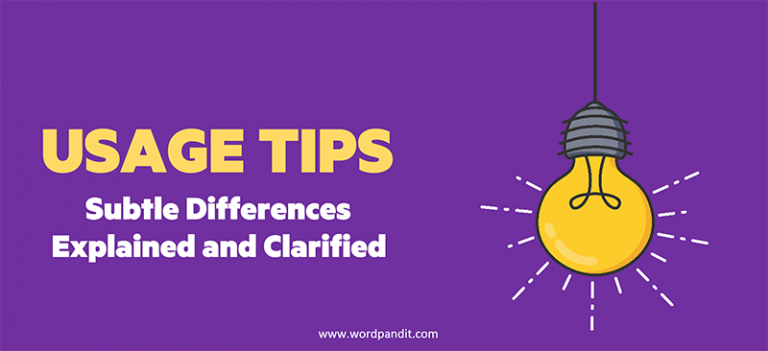Earthly vs. Earthy: Clearing Up the Confusion 🌍🌿
Have you ever stumbled across the words earthly and earthy and wondered, "Are they the same thing? Or do they just sound similar?" Don’t worry—you’re not alone! 🤔 These two words are often mixed up because they sound almost identical and seem to both be related to the earth. But in reality, they have very different meanings, and knowing the distinction can help you express yourself more clearly. Let’s dig in and get to the root of what makes earthly and earthy unique. 🌱
Earthly 🌏
Definition 📜
Earthly refers to anything related to the material world or human existence as opposed to the spiritual or divine realm. It’s about the mundane, everyday things—the kind of stuff that’s here and now. It often implies things that are temporary, fleeting, or related to human concerns rather than anything grand or cosmic.
Pronunciation 🔊
It’s pronounced as URTH-lee. The emphasis is on the first syllable, making it sound distinct yet familiar.
Etymology 📜
Earthly originates from the Old English word eorðlíc, which essentially means “related to the earth.” It’s used to contrast worldly matters with spiritual ones—think of the difference between physical things and lofty, celestial ideas. The history of the word points to its use in describing the physical aspects of our existence, as opposed to anything ethereal or divine.
Usage Examples ✍️
- The monk renounced all earthly possessions to live a simple life. 🧘♂️
- There’s no earthly reason why you shouldn’t pursue your dreams.
- She found herself longing for something more than just earthly pleasures.
- He was deeply concerned with earthly affairs, often ignoring the bigger spiritual picture.
Synonyms & Antonyms 🔄
- Synonyms: worldly, temporal, mundane, material
- Antonyms: spiritual, celestial, ethereal, otherworldly
Earthy 🌿
Definition 📜
Earthy describes something that’s connected to the qualities of soil or the physical earth, often giving a sense of being natural, unrefined, or rustic. It can also refer to someone with a simple, straightforward, or even crude demeanor. This word evokes the essence of nature, highlighting the raw, unpolished aspects of things or people.
Pronunciation 🔊
It’s pronounced as URTH-ee. Like earthly, the emphasis is on the first syllable, but the “-ee” ending gives it a slightly different tone.
Etymology 📜
Earthy also has roots in the Old English language, coming from eorðe, which means “soil” or “ground.” The word paints a picture of something raw and grounded—like fresh soil or someone who doesn’t sugarcoat their opinions. Historically, it has been used to refer to qualities directly connected to the earth, which is why it often implies something genuine, untamed, and honest.
Usage Examples ✍️
- The wine had an earthy flavor, with hints of mushrooms and damp soil. 🍇🍄
- She had an earthy sense of humor that made everyone feel comfortable. 🤣
- The artist’s style was very earthy, embracing natural colors and textures.
- His earthy personality was refreshing amidst all the pretentiousness.
Synonyms & Antonyms 🔄
- Synonyms: natural, rustic, unrefined, raw
- Antonyms: polished, sophisticated, refined, cultured
Comparison and Contrast ⚖️
While earthly relates to the material world and stands in contrast to the spiritual, earthy is all about being raw, natural, and down-to-earth (literally!). Imagine a monk meditating to transcend earthly concerns, while a farmer works the earthy soil with their hands. Earthly focuses on the difference between this world and the divine, whereas earthy refers to the physical qualities or unrefined characteristics of things. It’s important to remember that earthly often conveys a sense of limitation or human frailty, while earthy conveys an embrace of nature and authenticity.
Contextual Usage 📝
- The philosopher spoke about transcending earthly desires, while the gardener loved the earthy aroma of freshly tilled soil. 🧘♀️🌸
- His earthly ambitions were overshadowed by his earthy charm, which made him very relatable to people from all walks of life.
- The earthly responsibilities of managing a household are very different from the earthy joys of gardening.
Mnemonic Device 💡
To remember the difference: “Earthly is for the things of this world, while earthy is like the ground or a rustic vibe.” Think of a monk vs. a farmer: earthly worries are what the monk tries to leave behind, and the earthy soil is what the farmer loves. Imagine earthly as the burdens of daily life, whereas earthy is the wholesome smell of freshly tilled soil. The monk meditates to escape earthly concerns, but the farmer smiles at the earthy sensation of mud between his fingers.
Related Confusing Word Pairs 📚
If you enjoyed learning about earthly vs. earthy, you might also be interested in historic vs. historical or affect vs. effect. They’re equally tricky but rewarding to understand! Other pairs like elicit vs. illicit and eminent vs. imminent can also challenge your vocabulary skills, but mastering them makes your communication more precise.
Conclusion 🏁
There you have it—earthly and earthy might sound similar, but they represent very different ideas. Next time you encounter these words, think about whether you’re dealing with something related to the mundane world or something grounded and natural. Keep practicing, and soon, these word pairs will become second nature! The more you engage with these tricky distinctions, the more natural they will become, allowing you to communicate with clarity and precision.













